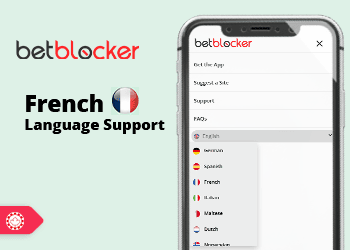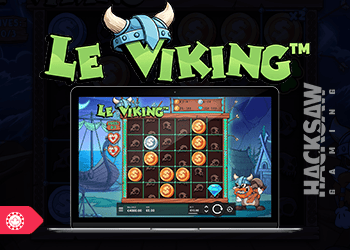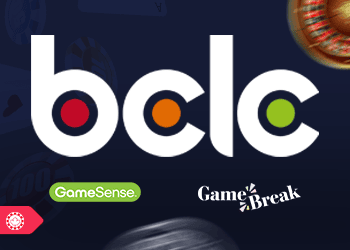
Bodog, the offshore online casino and sports betting site, is exiting another Canadian province. It wasn't immediately clear what prompted this decision, but Bodog's exit from Nova Scotia is hot on the heels of Bovada's recent departure from several states in the U.S after receiving cease-and-desist letters from multiple regulators. This clearly indicates that offshore sports betting sites exiting onshore markets is not just occurring in the U.S.
Bodog is informing players in Nova Scotia via email that it will no longer offer its services in the province and will permanently close accounts on 3 October 2024. The email is also directing players to withdraw their remaining funds at any time, but also indicated that real money deposits will no longer be accepted. In addition, any futures that are scheduled after 2 October have been voided and the amounts will be refunded to players. All other wagers need to be settled on 2 October as well. Bodog's official website currently states that it no longer accepts players from Quebec and Nova Scotia.
What Prompted the Decision?
It's not exactly clear what prompted the decision. However, Bodog's decision to exit Nova Scotia on 3 October 2024 follows the recent departure by Bovada, another popular offshore sportsbook, from multiple U.S states after receiving cease-and-desist letters from several regulators. Bovada is now restricting access from over 12 U.S states along with the District of Columbia. Whether Bodog received similar correspondence as Bovada is still unclear. Nevertheless, while Bovada Casino and Sportsbook is regulated in Curacao and Bodog in Antigua and Barbuda, the two have history.
In 1994, Canadian Calvin Ayre established Bodog. In 2006, Olympic gold medallist Alwyn Morris stated that he acquired the licensing rights and business for the Bodog brand after establishing the Morris Mohawk Gaming Group (MMGG) entity. The Group stated that it possessed a gambling license in Kahnawake, situated near Montreal, Quebec.
In 2021, Calvin Ayre along with three other Canadians, were indicted in the United States for operating an illegal sports betting business, among other things. The domain name for the Bodog website was seized as well. In 2017, however, U.S authorities decided to drop the felony charges against Cavlin Ayre after he pleaded guilty to a misdemeanour.
Bovada and Bodog Accused of Maintaining Ties
In 2011, the Bodog brand made an announcement that it will withdraw from the United States. In December of 2011, Bodog informed U.S players that it would block them from using the Bodog website and that MMGG will no longer use the brand. Alwyn Morris' biography on his website states that he launched the Bovada brand in 2011 and sold it in 2017.
However, now Bovada is claiming that the Harp Media B.V company is operating the site, and it was the Harp Media B.V company that regulators, including the Michigan Gaming Control Board, have sent cease-and-desist letters to. But Bovada and Bodog have been accused of maintaining ties.
In 2023, a class action lawsuit that was filed in Kentucky alleged that Bodog have listed Bovada as a website within the Bodog network, and that the Bodog website redirected players in the state towards the Bovada website. The claims made in the class action lawsuit have yet to be proven in court.
Canada Wants to Eliminate Unregulated Attempts
Similar to the U.S, Canada has had a "black" or "grey" market for online gambling for a long time where operators that could be regulated abroad or offshore, but not through provincial authorities, offered their services to locals. And, similar to the U.S, there's an effort taking place to eliminate unregulated attempts to provide online casino games and sports betting in Canada. Simply take a look at Ontario online casinos to see the positive effect it has on a province.
Covers contacted Atlantic Lottery Corporation (ALC) representatives after business hours on Monday, trying to find out if the government-owned corporation sent Bodog any cease-and-desist letters. However, there was no response received before this news article on Tuesday morning.
The Atlantic Lottery Corporation was initially established by four provincial government that included Nova Scotia. The corporation also operates the online locally available regulated sports betting site in Atlantic Canada with the Proline brand.
In addition, Loto-Quebec and the ALC are members of the Canadian Lottery Coalition. This is a group of government-owned entities that formed the coalition in 2022 with the primary objective to push back against unregulated and offshore gambling sites operating in Canada.
$200 Million is Flowing Out of Atlantic Canada
On Tuesday evening, the Atlantic Lottery Corporation weighed in with a statement from the President and CEO of ALC, Patrick Daigle, who stated that the company is the only government-regulated and legal provider of online sports betting and gambling products in Atlantic Canada.
Patrick Daigle also mentioned that an estimated $200 million is currently flowing out of the four Atlantic provinces annually in Canada through unregulated and illegal gambling websites. This is money that can fund public services and assist local governments. Therefore, its encouraging from ALC to see that Bodog will be ceasing all illegal operations across Nova Scotia. This clears the path for top legal online casinos and sports betting sites to thrive while giving back to the community.






